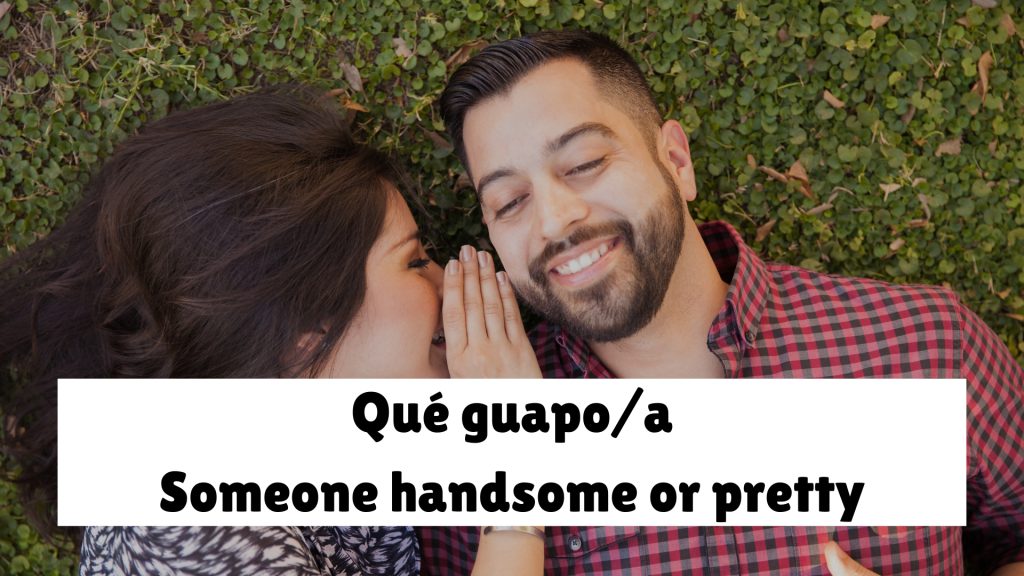In Spanish, there are many ways to say someone is beautiful, each with its own unique flavor. Words like ‘hermoso/a’, ‘lindo/a’, ‘precioso/a’, and ‘divino/a’ go beyond just looks. They touch on deeper qualities and emotions.
‘Hermoso/a’ shows deep admiration, while ‘divino/a’ hints at something heavenly. Knowing these differences does more than just improve how precisely you speak. It also makes your compliments feel more heartfelt.
It’s interesting to think about how culture plays a role in which word you might choose to use in different Spanish-speaking places.
How to say “beautiful” in Spanish
In Spanish, you can say ‘beautiful’ in a few different ways. Words like ‘hermoso’ or ‘hermosa’ mean a kind of grand beauty.
Each word has its own flavor, and what you choose might depend on where you are or what exactly you want to express.
| Spanish Expression | English Meaning | Usage Note |
|---|---|---|
| Bonito/a | Pretty | Simple and common for everyday use |
| Precioso/a | Gorgeous or Precious | Stronger than bonito, more emotional |
| Divino/a | Divine | Poetic, used for people and things |
The Expression “Bonito/a
The word ‘bonito/a’ in Spanish means something is nice-looking or pretty. It’s not as strong as ‘hermoso/a,’ but it’s still meaningful.

People use it to talk about attractive people, places, or things. It’s a handy word that adds a bit of charm to everyday Spanish chats.
| Spanish Phrase | English Meaning |
|---|---|
| Qué bonita sonrisa tienes | You have such a pretty smile |
| Este lugar es muy bonito | This place is very beautiful |
| Tienes un vestido bonito | You have a nice dress |
| Me gusta tu dibujo, es bonito | I like your drawing, it’s pretty |
| Es un nombre bonito | It’s a lovely name |
| Tienen una casa bonita | They have a pretty house |
| ¡Bonito detalle, gracias! | Nice gesture, thank you! |
| El mar se ve bonito hoy | The sea looks beautiful today |
| Qué bonito gesto de cariño | What a sweet act of affection |
| Tus palabras son muy bonitas | Your words are very kind |
Explore more Spanish vocabulary words starting with B for better language fluency.
The Expression “Precioso/a
Building on our talk about beauty, calling something ‘precioso/a’ is more than a simple compliment. It means that something isn’t just pretty, but also valuable and deeply cherished. This word goes beyond just looks; it taps into the real worth of something or someone.

When you call someone ‘precioso’ or ‘preciosa,’ it’s more than saying they’re good-looking. You’re actually saying they mean a lot to you, that they’re special in your eyes.
| Spanish Phrase | English Meaning |
|---|---|
| Tienes una voz preciosa | You have a lovely voice |
| Qué día tan precioso | What a gorgeous day |
| El cuadro es precioso | The painting is beautiful |
| Ella es una persona preciosa | She’s a wonderful person |
| Tus palabras son preciosas | Your words are precious |
| Me diste un regalo precioso | You gave me a beautiful gift |
| Qué sonrisa tan preciosa tienes | What a stunning smile you have |
| Esa joya es preciosa | That jewel is exquisite |
| El momento fue precioso | The moment was beautiful |
| Mira ese paisaje precioso | Look at that stunning landscape |
The Expression “Divino/a
Let’s talk about the word ‘Divino/a,’ which people use in different Spanish-speaking countries to talk about something extremely beautiful. This isn’t just any kind of beautiful—it’s top-notch.

We’re going to look at how people in Colombia, Argentina, and Spain use this word to compliment beauty, and see what makes each place unique.
| Spanish Phrase | English Meaning |
|---|---|
| Estás divina esta noche | You look divine tonight |
| ¡Qué comida tan divina! | What divine food! |
| Esa canción es divina | That song is heavenly |
| Fue una experiencia divina | It was a divine experience |
| Tu energía es divina | Your energy is divine |
| El aroma del café es divino | The coffee aroma is divine |
| Esa película fue divina | That movie was amazing |
| El vestido te queda divino | The dress looks divine on you |
| ¡Divina combinación de sabores! | Divine mix of flavors! |
| Tienes una voz divina | You have a divine voice |
Common expressions In Colombia
In Colombia, people often say ‘Divino/a’ to compliment someone’s looks or charm. It means they find someone or something really beautiful or appealing.
This word fits for praising not just people, but also places and things that catch the eye.

It shows how much Colombians appreciate beauty in their everyday life.
| Expression | Meaning |
|---|---|
| Qué nota | That’s amazing |
| Está una chimba | It’s super cool |
| Qué bacano | That’s great |
| Mamita/Papito | Flirty way to call someone attractive |
| Eso es una verraquera | That’s awesome |
| Está del putas | It’s insanely good |
| Está muy tesote | He/she looks incredible |
| Eso es una chimba de plan | That’s a great plan |
| Se ve una chimba | It looks amazing |
| Eso está repaila | That’s super bad (used ironically sometimes) |
Discover how to form the past subjunctive with regular and irregular verbs.
Common expressions In Argentina
In Argentina, people often say ‘Divino/a’ to describe something really beautiful or charming. It’s like saying ‘divine’ in English, but it means more than that.

It’s used for people, pretty places, and nice things. It makes compliments sound better, whether you’re talking about a gorgeous view or a beautiful painting.
| Expression | Meaning |
|---|---|
| Está re fachero/a | Looking super stylish |
| Es un bombón | Someone very attractive |
| Alta facha | Great style or good looks |
| Qué divino/a | Common way to admire something |
| Está de 10 | It’s perfect |
| Me copa mucho | I really love it |
| Es un fuego | It’s fire (hot, awesome) |
| Está mortal | It’s killer (amazing) |
| Tremenda pinta | Looking great |
| Es un caño | It’s sleek or sexy |
Common expressions In España
The word ‘divino’ or ‘divina’ isn’t just used in Italy or for religious reasons. In Spain, it means something really beautiful or amazing. When you call someone ‘divino’ or ‘divina,’ you’re saying they’re more than just good-looking.

They have a special kind of beauty that stands out, like they’re shining. It’s a big compliment, perfect for when you really want to show admiration.
| Expression | Meaning |
|---|---|
| Es una pasada | It’s amazing |
| Qué guapo/a | Someone handsome or pretty |
| Mola mucho | It’s really cool |
| Está que flipas | It’s mind-blowing |
| Es brutal | It’s insane (in a good way) |
| Me flipa | I love it |
| Está to guapo | It’s super nice |
| Es la caña | It’s awesome |
| Es un crack | He/she is amazing (at something) |
| Qué chulo/a | It’s stylish or cool |
Conclusion
In short, Spanish has many words to describe beauty, each with its own special meaning.
You can use words like ‘hermoso/a’, ‘lindo/a’, ‘precioso/a’, or ‘divino/a’ to show different levels of admiration.
Knowing these words helps you communicate better and shows you appreciate the subtle ways Spanish speakers see beauty.
Discover the latest updates at Lingua Viva – check it out now!
Carolina is a charming and lively member of Lingua Viva with 11+ years of teaching experience. She loves to teach students appropriate ways to communicate effectively in Spanish without the fear of making mistakes. She holds a professional teaching license and has a graduate degree with emphasis in Foreign Language.











